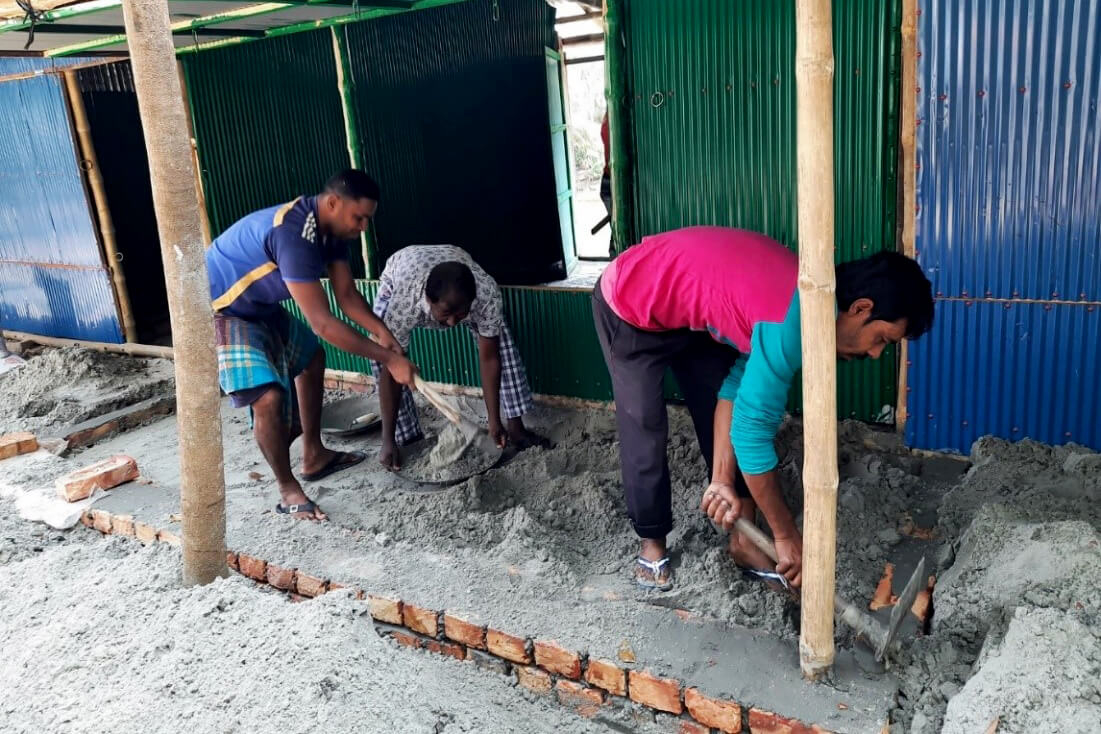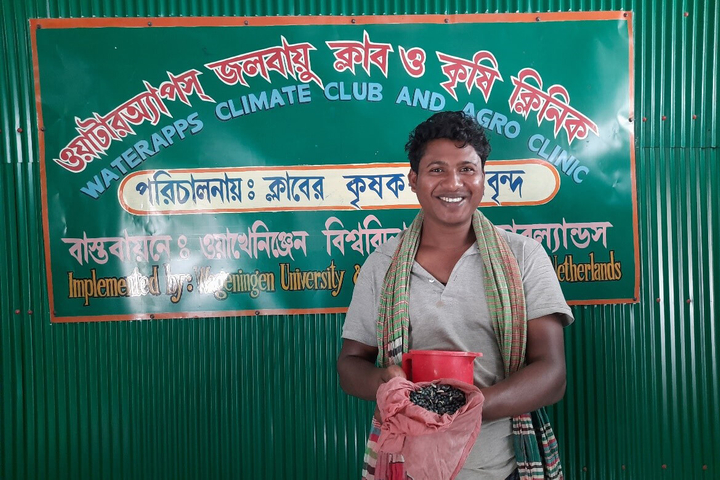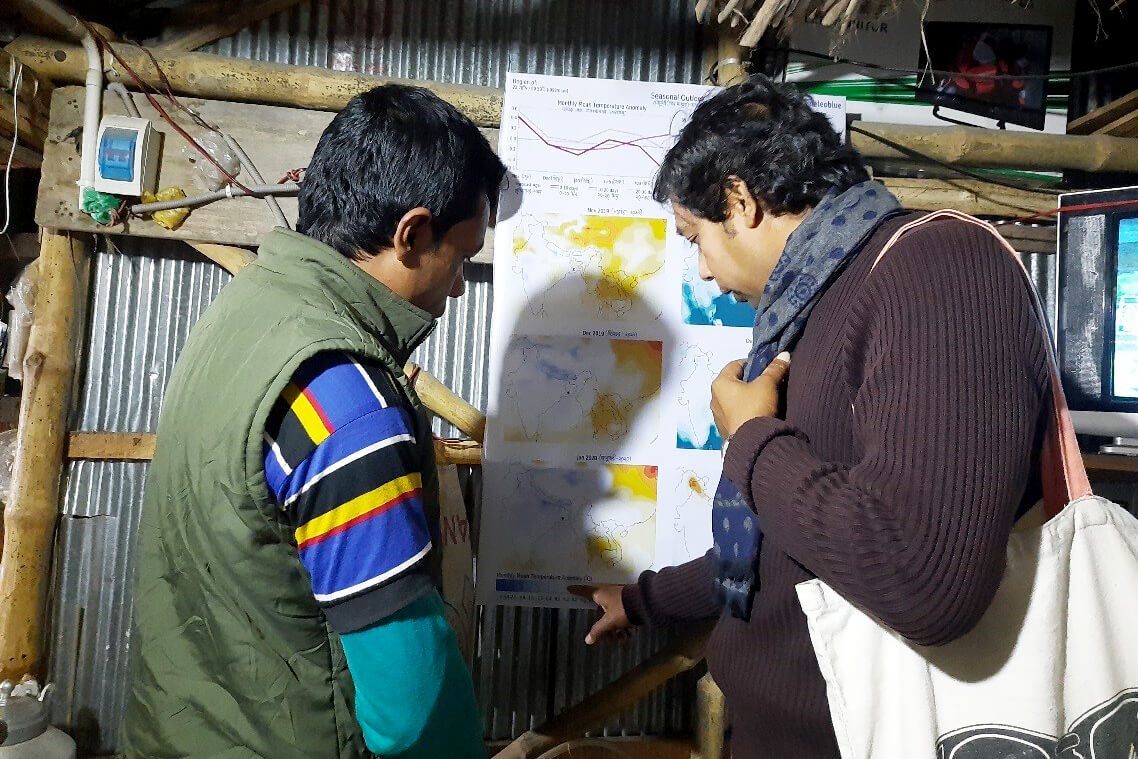An initiative on weather information service sharing in Bangladesh is leading to a positive impact on the farmers, as they are now able to combine scientific knowledge and personal experiences for localised weather prediction.
For a long time, farmers in the delta region of Bangladesh, have suffered crop loss due to sporadic and adverse weather conditions.
To solve this problem, the WATERAPPS project was rolled out in 2016 as a pilot plan around Khulna in Bangladesh, led by Wageningen University and Khulna University. It is a collaborative project involving scientists, farmers and policymakers to help farmers understand and withstand uncertain weather conditions.
When the project was initiated, most farmers believed that weather conditions are unpredictable as they are determined by god. They relied on cultural beliefs and indigenous knowledge to cope with uncertain weather conditions. The farming communities around Khulna used to follow Panjika (lunar calendar) as a guideline for short-term hydroclimatic forecasts. Peer consultation and personal experiences played an important role in the process.

This apart, farmers were mostly dependent on TV and radio news to get warnings about weather emergencies and disaster preparation. While available technology and advanced forecast information could potentially help farmers with agricultural decision-making to some extent, there are no localised weather forecast information services across Bangladesh.

To bridge this gap, I started working with smallholders in the peri-urban areas of Khulna. Since then I have been working on co-developing a plan called Climate Information Services, involving 60 experimental farmers groups. The project uses the services of meteoblue, a service created at the University of Basel, Switzerland, for 7-day, 14-day, and three-month forecasts. Meanwhile, I also linked farmers with alternative information packages from national and international hydrometeorological agencies by using community-led training.
Farmers now use smartphones and mobile apps to access Climate Information Services. Smallholders also provide the services to non-participant farmers through apps like meteoblue, Facebook Messenger groups, as well as personal contacts in public spaces.


Left: a local farmer in Sanchibunia village is learning how to interpret a three months forecast. Right: local farmers collecting climate information services using the virtual platform. They received training on how to access CIS from different sources using digital tools. Photos: Uthpal Kumar
WATERAPPscale is an upgraded version of WATERAPPS information services for sustainable food production at a larger scale. It aims to bridge the gap between existing national weather and climate services and the local needs of the farmers.
Under the WATERAPPS research programme, farmers initiated ‘weather clubs’ – informal arrangements of farmers and agricultural officers – to share information, and adapt farming techniques based on weather and climate forecasts. The WATERAPPS research project was completed in 2021. It has shown that combining scientific knowledge and community knowledge leads to tangible results.
So long, I have been working with support from the Department of Agricultural Extension and their field extension staff. Following a co-production effort of climate information services in the delta areas, I have recorded significant behavioural changes among smallholder farmers, including practical examples of forecast usage through weekly meetings and feedback sessions on forecasts since 2019.
Smallholders currently believe that weather and climatic phenomena can be predicted well in advance which could help them in their agricultural practice, life, and livelihoods, ensuring tactical and strategic decision-making.

Based on our successful intervention, the local farmers also initiated the Farmers' Weather Club for which a well-off local farmer allocated a piece of land. Local farmers in the region have also set up a weather information center at Sanchubunia Village.
Inspired by the positive impact of the whole project, I wish to extend our coordinated support to the local farmers for improving livelihoods and sustainable agricultural practices in the entire delta region. We are in the implementation phase of the WATERAPPscale project, funded by the Netherlands Organization for Scientific Research.
Therefore, under the umbrella of Urbanizing Deltas of the World Research Programme, we look forward to bridging gaps between science and society through co-developing the Climate Information Service for sustainable agricultural practices of the Bengal delta region.





